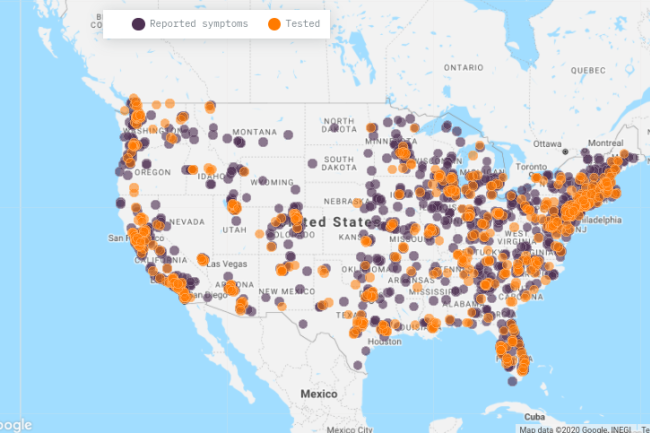COVID-19 stay-at-home orders have had a divided impact on health, and new research finds that the effect is different for people with obesity.
By Li Tong Low
COVID-19 stay-at-home orders have significantly changed the way we live, including how we eat, exercise, and sleep, which are important for our physical and mental health. While the stay-at-home orders help to keep us away from the virus, the change in our lifestyle behaviors can leave some of us closer to other health issues.
Researchers from Pennington Biomedical Research Center have found that COVID-19 stay-at-home orders affect our physical and mental health negatively, and the impact is greater for individuals with obesity compared to those without.
COVID-19 stay-at-home orders and health behaviors
Flanagan and colleagues conducted a global survey in April 2020, in which they asked participants to report their health behaviors (including diet, sedentary behavior, physical activity, sleep, and mental health), both before and during the COVID-19 pandemic. Out of over 12,000 adults who responded, 7,753 adults completed the survey. Most participants were white, older women, and they were mainly from the United States, United Kingdom, Australia, and Canada. Based on body mass index, about one-third of the participants had normal weight, one-third were overweight, and one-third had obesity.

Since COVID-19 stay-at-home orders went into effect around the world, participants in this study cooked at home more often, ate out less frequently, and overall had more healthy diets (e.g., ate more fruits and less fried food). However, more participants reported increased unhealthy snacking (44 percent) than increased healthy snacking (26 percent). Moreover, participants spent more time in sedentary behaviors (e.g., watching television and playing video games) and less time in physical activity (e.g., running and walking). Participants also slept and woke up later, and more participants reported worse sleep quality (44 percent) than better sleep quality (10 percent). Overall anxiety also increased: 75 percent of participants were concerned about their own health and 88 percent were concerned about their family’s health. Fourteen percent more participants reported anxiety symptoms that disrupted their daily life.
The case of obesity
Compared to participants with normal weight or overweight, participants with obesity reported greater increase in overall anxiety since COVID-19 pandemic. During the pandemic, anxiety symptoms that disrupted daily life functioning were more common in participants with obesity (24 percent) compared to participants with normal weight (17 percent) or overweight (17 percent). Twenty-seven percent of participants reported weight gain since the pandemic (although 17 percent reported weight loss), and weight gain was more common in participants with obesity (33 percent) compared to participants with normal weight (25 percent) or overweight (21 percent).

“The stay-at-home orders did result in one major health positive. Overall, healthy eating increased because we ate out less frequently. However, we snacked more. We got less exercise. We went to bed later and slept more poorly. Our anxiety levels doubled,” co-researcher Dr. Leanne Redman says. “Overall, people with obesity improved their diets the most. But they also experienced the sharpest declines in mental health and the highest incidence of weight gain,” Dr. Redman adds.
RELATED: Drinking behaviors also changed with stay-at-home orders, leading to More Alcohol-Related Hepatitis Following COVID-19
So, the researchers suggest that clinicians conduct more mental health screenings for individuals with obesity during and after the pandemic. The researchers also suggest that clinicians stay connected with individuals with obesity via technology and provide remote healthcare when face-to-face visits are not preferred.
This study was published in Obesity, the journal of The Obesity Society.
Reference
Flanagan, E. W., Beyl, R. A., Fearnbach, S. N., Altazan, A. D., Martin, C. K., & Redman, L. M. (2020). The impact of COVID‐19 stay‐at‐home orders on health behaviors in adults. Obesity. Advance online publication. https://doi.org/10.1002/oby.23066
This article has been updated to include a link to the original research published in the journal Obesity.
About the Author
Li Tong Low is a research assistant working on neuroscience and psychology projects. She is engaged in research translation and enjoys writing about scientific discoveries for the public.
The information contained in this article is for informational purposes only and is not intended as health or medical advice. Always consult a physician or other qualified health provider regarding any questions you may have about a medical condition or health objectives.




